װען איך בין רױטשילד
(אַ מאָנאָלאָג פֿון אַ כּתרילעװקער מלמד)
|
If I were Rothschild
(The Monologue of a Kasrilevka Melamed)
|
ven ikh bin roytshild
(a monolog fun a kasrilevker melamed)
|
|
― װען איך בין רױטשילד, ―
האָט זיך צעלאָזט אַ
כּתרילעװקער מלמד אײנמאָל אין
אַ דאָנערשטיק, בעת די
רביצין האָט אים געמאָנט
אױף שבת און ער
האָט נישט געהאַט, ― אױ,
װען איך זאָל זײַן
רױטשילד! טרעפֿט, װאָס איך
טו? ראשית־חכמה, פֿיר
איך אײַן אַ מינהג,
אַז אַ װײַב זאָל
תּמיד האָבן בײַ זיך
אַ דרײַערל, בכדי זי
זאָל פֿאַרשפּאָרן דולן אַ
ספּאָדיק, אַז סע קומט
דער גוטער דאָנערשטיק און
ס'איז נישטאָ אױף
שבת… והשנית, קױף איך
אױס די שבתדיקע קאַפּאָטע,
אָדער נײן ― דעם װײַבס
קעצענעם בורנעס ― לאָז זי
אױפֿהערן פּיקן אין קאָפּ
אַרײַן, אַז ס'איז
איר קאַלט! און קױף
אַװעק די דאָזיקע שטוב
אינגאַנצן מיט אַלע דרײַ
חדרים, מיט דער קאַמער,
מיט דער שפּײַזאַרניע, מיטן
קעלער, מיטן בױדעם, מיט
הכּל־בכּל־מכּל־פֿלעקל, ―
לאָז זי נישט זאָגן,
אַז ס'איז איר
ענג; נאַ דיר אַװעק
צװײ חדרים, קאָך דיר,
װאַש דיר, בראָק דיר,
און לאָז מיך צורו,
איך זאָל קאָנען קנעלן
מיט מײַנע תּלמידים מיט
אַ רײנעם קאָפּ!
|
IF I WERE ROTHSCHILD, ah, if I were only Rothschild ― a Kasrilevka melamed let
himself go once upon a Thursday while his wife was demanding money for the
Sabbath and he had none to give her. If I were only Rothschild, guess what I
would do. First of all, I would pass a law that a wife must always have a
three-ruble piece on her so that she wouldn’t have to start nagging me when the
good Thursday comes and there is nothing in the house for the Sabbath. In the
second place I would take my Sabbath gabardine out of pawn ― or, better still,
my wife’s squirrel-skin coat. Let her stop whining that she’s cold. Then I would
buy the whole house outright, from foundation to chimney, all three rooms, with
the alcove and the pantry, the cellar and the attic. Let her stop grumbling that
she hasn’t enough room. “Here,” I would say to her, “take two whole rooms for
yourself-cook, bake, wash, chop, make, and leave me in peace so that I can teach
my pupils with a free mind.”
|
― ven ikh bin roytshild, ― hot zikh tselozt a kasrilevker melamed eynmol in a
donershtik, beys di rebitsin hot im gemont oyf shabes un er hot nisht gehat, ―
oy, ven ikh zol zayn roytshild! treft, vos ikh tu? reyshes-khokhme, fir ikh ayn
a mineg, az a vayb zol tomed hobn bay zikh a drayerl, bekhdey zi zol farshporn
duln a spodik, az se kumt der guter donershtik un s'iz nishto oyf shabes…
vehasheynes, koyf ikh oys di shabesdike kapote, oder neyn ― dem vaybs ketsenem
burnes ― loz zi oyfhern pikn in kop arayn, az s'iz ir kalt! un koyf avek di
dozike shtub ingantsn mit ale dray khadorem, mit der kamer, mit der shpayzarnye,
mitn keler, mitn boydem, mit hakl-bakl-mikl-flekl, ― loz zi nisht zogn, az s'iz
ir eng; na dir avek tsvey khadorem, kokh dir, vash dir, brok dir, un loz mikh
tsuru, ikh zol konen kneln mit mayne talmidem mit a reynem kop!
|

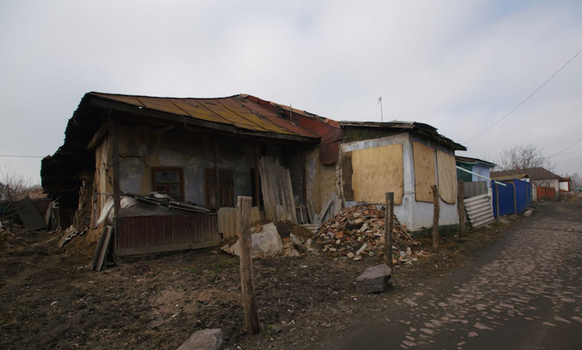

|
|
נישטאָ קײן דאגות־פּרנסה, מע
באַדאַרף נישט קלערן, װוּ
נעמט מען אױף שבת
― מחיה־נפֿשות! די טעכטער
אַלע חתונה געמאַכט, אַראָפּ
אַ האָרב פֿון די
פּלײצעס ― װאָס פֿעלט
מיר? הײב איך מיך
אָן אַרומקוקן אַביסל אױף
דער שטאָט. דאָס ערשטע
בין איך מנדר אַ
נײַעם דאַך אױפֿן אַלטן
בית־המדרש, לאָז אױפֿהערן קאַפּען
אױפֿן קאָפּ, בשעת ייִדן
דאַװנען; און, להבֿדיל, דאָס
מרחץ בױ איך איבער
אױפֿסנײַ. װאָרעם נישט
הײַנט־מאָרגן ― עס װעט
דאָרטן מוזן זײַן אַן
אומגליק, חס־ושלום, טאָמער
פֿאַלט דאָס אױס אַקוראַט
בשעת נשים באָדן זיך.
|
This is the life! No more worries about making a living. No more headaches about
where the money for the Sabbath is coming from. My daughters are all married
off ― a load is gone from my shoulders. What more do I need for myself? Now I can
begin to look around the town a little. First of all I am going to provide a new
roof for the old Synagogue so the rain won’t drip on the heads of the men who
come to pray. After that I shall build a new bathhouse, for if not today, then
tomorrow ― but surely soon ― there is bound to be a catastrophe: the roof is
going to cave in while the women are inside bathing.
|
nishto keyn dayges parnose, me badarf nisht klern, vu nemt men oyf shabes ―
mekhaye-nefoshes! di tekhter ale khasene gemakht, arop a horb fun di pleytses ―
vos felt mir? heyb ikh mikh on arumkukn abisl oyf der shtot. dos ershte bin ikh
menader a nayem dakh oyfn altn bes-hamedresh, loz oyfhern kapen oyfn kop, bshas
yidn davnen; un, lehavdil, dos merkhets boy ikh iber oyfsnay. vorem nisht
haynt-morgn ― es vet dortn muzn zayn an umglik, khas-vesholem, tomer falt dos
oys akurat bshas noshem bodn zikh.
|
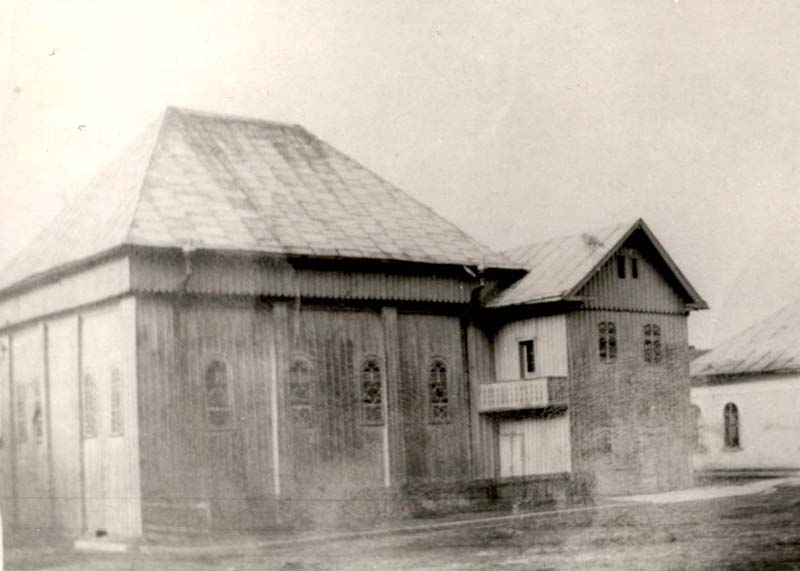
|
|
און װיבאַלד דאָס באָד,
מוז מען שױן דאָס
הקדש אַװדאי צעװאַרפֿן און
אַנידערשטעלן אַ „ביקור־חולים“
אָבער טאַקע װאָס אַ
ביקור־חולים הײסט, מיט
בעטלעך, מיט אַ דאָקטער,
מיט רפֿואות, מיט יײַכלעך
אַלע טאָג פֿאַר די
חולאָים, װי עס פֿירט
זיך אין לײַטישע שטעט.
און אַ „מושבֿ־זקנים“, שטעל
איך אַװעק, אַלטע ייִדן
לומדים זאָלן זיך נישט
װאַלגערן אין בית־המדרש בײַ
דער הרובע, און אַ
חבֿרה „מלביש־יתומים“, אָרעמע
קינדער זאָלן נישט אַרומגײן,
איך בעט איבער אײַער
כּבֿוד, מיט די פּופּקעס
אין דרױסן, און אַ
חבֿרה „גמילות־חסדים“, אַז
איטלעכער ייִד, סײַ אַ
מלמד, סײַ אַ בעל־מלאָכה,
סײַ אַ סוחר אַפֿילו
זאָל פֿאַרשפּאָרן צאָלן פּראָצענט,
נישט דאַרפֿן פֿאַרמשכּונען דאָס
העמד פֿונעם לײַב, און
אַ חבֿרה „הכנסת־כּלה“, אַז
װוּ ערגעץ אַן אָרעם
מײדל נעבעך אַ דערװאַקסענע,
זאָל מען זי אױסקלײדן,
װי עס געהער צו
זײַן, און חתונה מאַכן,
און נאָך כּדומה אַזעלכע
חבֿרות פֿיר איך אײַן
בײַ אונדז אין כּתרילעװקע…
|
And while we are putting up a new bathhouse we might as well throw down the old
poorhouse too and put up a hospital in its place, a real hospital such as they
have in big towns, with beds and bedding, with a doctor and attendants, with hot
broths for the sick every day... And I shall build a home for the aged so
that old men, scholars who have fallen upon hard times, shouldn’t have to spend
their last days on the hearth in the synagogue. And I shall establish a Society
for Clothing the Poor so that poor children won’t have to run around in rags
with-I beg your pardon for mentioning it-their navels showing. Then I shall
institute a Loan Society so that anyone at all-whether he be a teacher or a
workman, or even a merchant-could get money without having to pay interest and
without pawning the shirt off his back. And a Society for Outfitting Brides so
that any girl old enough to marry and without means should be outfitted properly
and married off as befits a Jewish girl. I would organize all these and many
other such societies in Kasrilevka.
|
un vibald dos bod, muz men shoyn dos hekdesh avade tsevarfn un anidershteln a
"biker-khoylem" ober take vos a biker-khoylem heyst, mit betlekh, mit a dokter,
mit refues, mit yaykhlekh ale tog far di kheloyem, vi es firt zikh in laytishe
shtet. un a "moyshev-zkeynem", shtel ikh avek, alte yidn lomdem zoln zikh nisht
valgern in bes-hamedresh bay der hrube, un a khevre "malbesh-yesoymem", oreme
kinder zoln nisht arumgeyn, ikh bet iber ayer koved, mit di pupkes in droysn, un
a khevre "gmiles-khasodem", az itlekher yid, say a melamed, say a balmelokhe,
say a soykher afile zol farshporn tsoln protsent, nisht darfn farmashkenen dos
hemd funem layb, un a khevre "hakhnosas-kale", az vu ergets an orem meydl nebekh
a dervaksene, zol men zi oyskleydn, vi es geher tsu zayn, un khasene makhn, un
nokh kedoyme azelkhe khevres fir ikh ayn bay undz in kasrilevke…
|
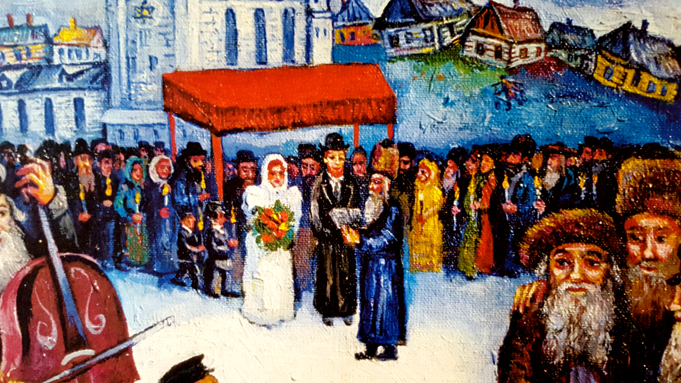
|
|
נאָר װאָס איז שײך
עפּעס דװקא נאָר בײַ
אונדז אין כּתרילעװקע?
אומעטום, װוּ עס געפֿינען
זיך נאָר אַחינו־בני־ישׂראל, פֿיר
איך אײַן אַזעלכע חבֿרות,
אומעטום, אױף דער גאַנצער
װעלט! און בכדי עס
זאָל זיך פֿירן מיט
אַ סדר, װי עס
געהער צו זײַן ―
טרעפֿט, װאָס טו איך?
מאַך איך אױף אַלע
חבֿרות אײן חבֿרה אַ
גרױסע, אַ צדקה־גדולה־חבֿרה,
װאָס גיט אַכטונג אױף
אַלע חבֿרות, אױף אַלע
ייִדן. דאָס הײסט, אױף
דעם כּלל־ישׂראל, אַז ייִדן
זאָלן אומעטום האָבן פּרנסה
און לעבן אין אַחדות
און זאָלן זיצן אין
די ישיבֿות און לערנען:
חומש מיט רש″י, מיט
גמרא, מיט תּוספֿות, מיט
מהרש″א, מיט אַלע שבֿע־חכמות
און מיט אַלע שיבֿעים
לשון, און אױף אַלע
ישיבֿות זאָל זײַן אײן
ישיבֿה אַ גרױסע, אַ
ייִדישע אַקאַדעמיע, אין דער
װילנע געװײנטלעך, װאָס פֿון
דאָרטן זאָלן אַרױסגײן די
גרעסטע לומדים און חכמים
אין דער װעלט, און
אַלצדינג זאָל זײַן אומזיסט,
„על חשבון הגבֿיר“, אױף
מײַן קעשענע, און אַלצדינג
זאָל זיך פֿירן מיט
אַ סדר און מיט אַ
פּלאַן, עס זאָל נישט
זײַן קײן „גיב־מיר־נאַ־דיר־כאַפּ־לאַפּ“,
און אַלע זאָלן אין
זינען האָבן נאָר
טובֿת־הכּלל!…
|
But why only here in Kasrilevka? I would organize such societies everywhere, all
over the world, wherever our brethren the Sons of Israel are to be found. And in
order that they should all be run properly, with a system, guess what I would
do. I would appoint a Society to head them all, a Board of Charity that would
watch over all the societies under it. This Board of Charity would keep watch
over all of Israel and see to it that Jews everywhere had enough to live on, and
that they lived together in unity. It would see to it that all Jews sit in
yeshivas and study the Bible, the Talmud, the Gemorah, and the various
Commentaries and learn all the seven wisdoms and the seventy-seven languages.
And over all these yeshivas there would be one great yeshiva or Jewish Academy,
which would naturally be located in Vilna. And from there would come the
greatest scholars and wise men in the world. And all of this education would be
free to everyone, all paid for out of my pocket. And I would see to it that it
was all run in orderly fashion, according to plan, so that there should be none
of this grab-and-run, hit-and-miss, catch-as-catch-can business. Instead,
everything would be run with a view to the common welfare.
|
nor vos iz shayekh epes davke nor bay undz in kasrilevke? umetum, vu es gefinen
zikh nor akheynu-beney-yisroel, fir ikh ayn azelkhe khevres, umetum, oyf der
gantser velt! un bekhdey es zol zikh firn mit a seyder, vi es geher tsu zayn ―
treft, vos tu ikh? makh ikh oyf ale khevres eyn khevre a groyse, a
tsedoke-gedoyle-khevre, vos git akhtung oyf ale khevres, oyf ale yidn. dos heyst,
oyf dem klal-yisroel, az yidn zoln umetum hobn parnose un lebn in akhdes un zoln
zitsn in di yeshives un lernen: khumesh mit rashi, mit gemore, mit toysfes, mit
maharshe, mit ale sheve-khokhmes un mit ale shivem loshn, un oyf ale yeshives
zol zayn eyn yeshive a groyse, a yidishe akademye, in der vilne geveyntlekh, vos
fun dortn zoln aroysgeyn di greste lomdem un khakhomem in der velt, un altsding
zol zayn umzist, "al kheshbn hagevir'', oyf mayn keshene, un altsding zol zikh
firn mit a seyder un mit a plan, es zol nisht zayn keyn
"gib-mir-na-dir-khap-lap'', un ale zoln in zinen hobn nor
toyves-haklal!…
|
|
און בכדי מע זאָל
קענען טראָגן אױפֿן קאָפּ
דעם „כּלל“ ― װאָס
דאַרף מען? דאַרף מען
באַװאָרענען דעם פּרט. און
מיט װאָס קען מען
באַװאָרענען דעם פּרט?
געװײנטלעך,
מיט פּרנסה; װאָרעם פּרנסה,
הערט איר, דאָס איז
דער רעכטער עיקר; אָן
פּרנסה קאָן נישט זײַן
קײן אַחדות; איבערן שטיקל
ברױט, מישטײנס געזאָגט, איז
אײנער דעם אַנדערן יורד־לחײו,
קאַפּאַל יענעם קױלען,
סמען, הענגען!… אַפֿילו
די שׂונאי ישׂראל, אונדזערע
המנס פֿון דער גאַנצער
װעלט, מײנט איר, װאָס
האָבן זײ צו אונדז?
גאָרנישט. נאָר צוליב פּרנסה.
זײ זאָלן האָבן פּרנסה,
װאָלטן זײ גאָר אַזױ
שלעכט נישט געװען. פּרנסה
ברענגט צו קינאה, קינאה
ברענגט צו שׂינאה, און
דערפֿון, רחמנא ליצלן, נעמען
זיך אַלע צרות אױף
דער װעלט, אַלע אומגליקן,
נישט דאָ געדאַכט, מיט
אַלע רדיפֿות, מיט אַלע
הריגות, מיט אַלע רציחות
און מיט אַלע מלחמות…
|
But in order to have everyone think only of the common welfare, you have to
provide one thing. And what is that? Naturally, security. For, take it from me;
security from want is the most important thing in the world. Without it there
can be no harmony anywhere. For alas, one man will impoverish another over a
piece of bread, he will kill, poison, hang his fellow-man. Even the enemies of
Israel, the Hamans of the world-what do you think they have against us? Nothing
at all. They don’t persecute us out of plain meanness, but because of their lack
of security. It’s lack of money, I tell you, that brings envy and envy brings
hatred, and out of hatred come all the troubles in the world, all the sorrows,
persecutions, killings, all the horrors and all the wars...
|
un bekhdey me zol kenen trogn oyfn kop dem "klal'' ― vos darf men? darf men
bavorenen dem prat. un mit vos ken men bavorenen dem prat? geveynlekh, mit
parnose; vorem parnose, hert ir, dos iz der rekhter iker; on parnose kon nisht
zayn keyn akhdes; ibern shtikl broyt, mishteyns gezogt, iz eyner dem andern
yoyred-lekhayev, kapal yenem koylen, samen, hengen!… afile di soyney yisroel,
undzere homens fun der gantser velt, meynt ir, vos hobn zey tsu undz? gornisht.
nor tsulib parnose. zey zoln hobn parnose, voltn zey gor azoy shlekht nisht
geven. parnose brengt tsu kine, kine brengt tsu sine, un derfun,
rakhmone-letslan, nemen zikh ale tsores oyf der velt, ale umglikn, nisht
do gedakht, mit ale redifes, mit ale hariges, mit ale retsikhes un mit ale
milkhomes…
|
|
אױ, די מלחמות, די
מלחמות! דאָס איז, הערט
איר, גאָר אַ שחיטה
פֿאַר דער װעלט! װען
איך
בין רױטשילד, מאַך איך
אױס מלחמות, אָבער טאַקע
לחלוטין אױס!
|
Ah, the wars, the wars. The terrible slaughters. If I were Rothschild I would do
away with war altogether. I would wipe it off completely from the face of the
earth.
|
oy, di milkhomes, di milkhomes! dos iz, hert ir, gor a shkhite far der velt!
ven ikh bin roytshild, makh ikh oys milkhomes, ober take lakhlutn oys!
|

|
|
װעט איר דאָך פֿרעגן:
װיִאַזױ? נאָר מיט געלט.
דהײַנו? איך װעל עס
אײַך געבן צו פֿאַרשטײן
מיט אַ שׂכל: למשל,
צװײ מלוכות צעאַמפּערן זיך
איבער אַ נאַרישקײט דאָרט,
אַ שטיקל ערד, װאָס
איז װערט אַ שמעק
טאַביקע; „טעריטאָריע“
הײסט עס בײַ זײ.
די מלוכה זאָגט, אַז
די טעריטאָריע איז איר
טעריטאָריע, און די מלוכה
זאָגט: „נײן, ס'איז
מײַן טעריטאָריע“. מששת־ימי־בראשית,
הײסט עס, האָט גאָט
באַשאַפֿן אָט דאָס שטיקל
ערד פֿון איר כּבֿוד
װעגן. קומט צוגײן אַ
דריטע און זאָגט: „איר
זײט בײדע בהמות; די
טעריטאָריע איז אַלעמענס
טעריטאָריע, אַ רשות־הרבים הײסט
עס“. הקיצור, טעריטאָריע אַהער,
טעריטאָריע אַהין, מע
„טעריטאָריעט“ אַזױ לאַנג, ביז
מע הײבט אָן שיסן
פֿון ביקסן און האַרמאַטן,
און מענטשן קױלען זיך
אײנס דאָס אַנדערע װי
די שאָף, און בלוט,
בלוט גיסט זיך אַזױ
װי װאַסער.
|
You will ask how? With money, of course. Let me explain it to you. For instance,
two countries are having a disagreement over some foolishness, a piece of land
that’s worth a pinch of snuff. “Territory” they call it. One country
says this “territory” is hers and the other one says, “No, this territory is
mine.” You might think that on the First Day, God created this piece of land in
her honor …. Then a third country enters and says, “You are both asses. This is
everybody’s ‘territory,’ in other words, it’s a public domain.” Meanwhile the
argument goes on. “Territory” here, “territory” there. They “territory” each
other so long that they begin shooting with guns and cannon and people start
dying like sheep and blood runs everywhere like water...
|
vet ir dokh fregn: viazoy? nor mit gelt. dehayne? ikh vel es aykh gebn tsu
farshteyn mit a seykhl: lemoshl, tsvey melukhes tseampern zikh iber a narishkayt
dort, a shtikl erd, vos iz vert a shmek tabike; "teritorye" heyst es bay zey. di
melukhe zogt, az di teritorye iz ir teritorye, un di melukhe zogt: "neyn, s'iz
mayn teritorye". misheyshes-yemey-breyshes, heyst es, hot got bashafn ot dos
shtikl erd fun ir koved vegn. kumt tsugeyn a drite un zogt: "ir zeyt beyde
beheymes; di teritorye iz alemens teritorye, a reshus-harabem heyst es".
hakitser, teritorye aher, teritorye ahin, me "teritoryet" azoy lang, biz me
heybt on shisn fun biksn un harmatn, un mentshn koylen zikh eyns dos andere vi
di shof, un blut, blut gist zikh azoy vi vaser.
|
|
אָבער אַז איך קום
צו זײ לכתּחילה און
זאָג זײ: „שאַט, ברידערלעך,
לאָזט אײַך דינען. אין
װאָס גײט דאָ בײַ
אײַך, אײגנטלעך, דער גאַנצער
סיכסוך? מע פֿאַרשטײט דען
נישט אײַער מײן? איר
מײנט נישט אַזױ די
הגדה, װי די קנײדלעך.
טעריטאָריע איז דאָך בײַ
אײַך נאָר אַן אױסרײד;
דער עיקר איז דאָך
בײַ אײַך יענע מעשׂה,
פּעטי־מעטי, קאָנטריבוציע! און
װיבאַלד לשון קאָנטריבוציע ―
צו װעמען קומט מען
אָן מיט אַ הלװאה?
צו מיר, צו רױטשילדן
הײסט עס. אַמער, װײסט
איר װאָס? נאַ דיר,
ענגלענדער מיט די לאַנגע
פֿיס און מיט די
קעסטלדיקע הױזן, אַ מיליאַרד!
נאַ דיר, נאַרישער טערק
מיט דער רױטער יאַרמלקע,
אַ מיליאַרד! נאַ דיר,
מומע רײזל, אױך אַ
מיליאַרד, ממה־נפֿשך, גאָט װעט
אײַך העלפֿן, װעט איר
מיר אָפּצאָלן מיט פּראָצענט,
נישט חלילה קײן גרױסן
פּראָצענט, פֿיר אָדער פֿינף
לשנה, איך װיל אױף
אײַך נישט רײַך װערן“…
|
But if I come to them at the very beginning and say, “Listen to me, little
brothers. Actually, what is your whole argument about? Do you think that I don’t
understand? I understand perfectly. At Passover you are more concerned with the
matzo balls than with the seder. ‘Territory’ is only a pretext. What you are
after is something else-something you can get your hands on-money, levies. And
while we are on the subject of money, to whom does one come for a loan if not to
me, that is, to Rothschild? I’ll tell you what. Here, you Englishmen with the
long legs and checkered trousers, take a billion. Here, you stupid Turks with
the scarlet caps, take a billion also. And you, Aunt Reisel, that is Russia,
take another billion. With God’s help you will pay me back with interest, not a
large rate of interest, God forbid, four or five percent at the most-I don’t
want to get rich off you.”
|
ober az ikh kum tsu zey lekhatkhile un zog zey: "shat, briderlekh, lozt aykh
dinen. in vos geyt do bay aykh, eygntlekh, der gantser sikhsekh? me farshteyt
den nisht ayer meyn? ir meynt nisht azoy di hagode, vi di kneydlekh. teritorye
iz dokh bay aykh nor an oysreyd; der iker iz dokh bay aykh yene mayse,
peti-meti, kontributsye! un vibald loshn kontributsye ― tsu vemen kumt men on
mit a halvoe? tsu mir, tsu roytshildn heyst es. amer, veyst ir vos? na dir,
englender mit di lange fis un mit di kestldike hoyzn, a milyard! na dir,
narisher terk mit der royter yarmlke, a milyard! na dir, mume reyzl, oykh a
milyard, moneshekh, got vet aykh helfn, vet ir mir optsoln mit protsent, nisht
kholile keyn groysn protsent, fir oder finf leshone, ikh vil oyf aykh nisht
raykh vern"…
|
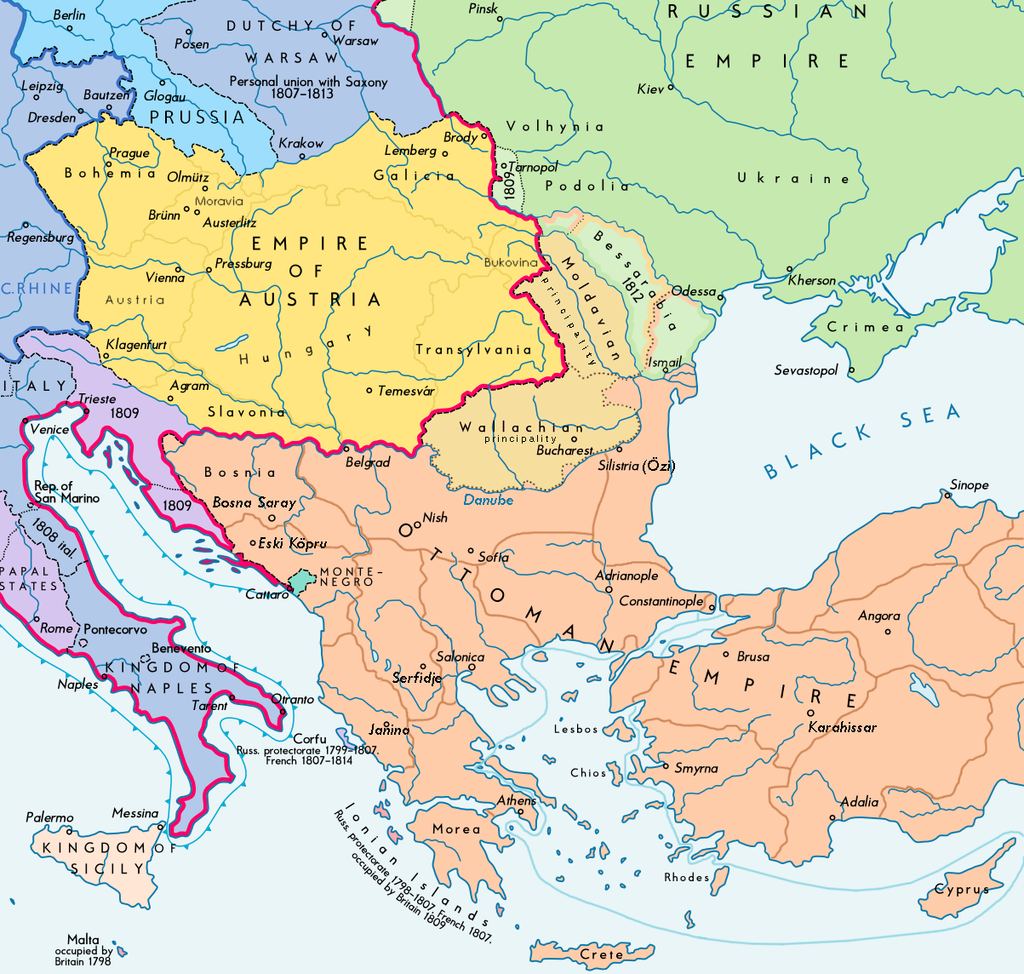
|
|
פֿאַרשטײט איר שױן? אי
איך האָב געמאַכט אַ
געשעפֿט, אי מענטשן הערן
אױף צו קױלען אײנס
דאָס אַנדערע, װי די
אָקסן, אומזיסט און אומנישט.
און װיבאַלד אױס מלחמות,
הײַנט צו װאָס באַדאַרף
מען דאָס כּלי־זײן, מיטן
חײל, מיט אַלע זיבעצן
זאַכן, מיטן גאַנצן טאַרעראַם?
אױף תּישעה־נײַנציק כּפּרות! און
װיבאַלד אױס כּלי־זײן, אױס
חײל, אױס טאַרעראַם, איז
דאָך אױס שׂינאה, אױס
קינאה, אױס טערק, אױס
ענגלענדער, אױס פֿראַנצױז, אױס
ציגײַנער, אױס ייִד, להבֿדיל
― די גאַנצע װעלט
באַקומט גאָר דעמאָלט אַן
אַנדער פּנים, װי אין
פּסוק שטײט בײַ אונדז
געשריבן: „והיה, און עם
װעט זײַן, ביום ההוא,
דאָס הײסט, אַז משיח
װעט קומען!“…
|
Do you understand what I’ve done? I have not only put over a business deal, but
people have stopped killing each other in vain, like oxen. And since there will
be no more war, what do we need weapons for? What do we need armies and cannons
and military bands for, and all the other trappings of war? The answer is that
we don’t. And if there are no more weapons and armies and bands and other
trappings of war, there will be no more envy, no more hatred, no Turks, no
Englishmen, no Frenchmen, no Gypsies and no Jews. The face of the earth will be
changed. As it is written: “Deliverance will come” The Messiah will have
arrived.
|
farshteyt ir shoyn? i ikh hob gemakht a gesheft, i mentshn hern oyf tsu koylen
eyns dos andere, vi di oksn, umzist un umnisht. un vibald oys milkhomes, haynt
tsu vos badarf men dos kley-zayen, mitn khayel, mit ale zibetsn zakhn, mitn
gantsn tareram? oyf teysho-nayntsik kapores! un vibald oys kley-zayen, oys
khayel, oys tareram, iz dokh oys sine, oys kine, oys terk, oys englender, oys
frantsoyz, oys tsigayner, oys yid, lehavdil ― di gantse velt bakumt gor demolt
an ander ponem, vi in posek shteyt bay undz geshribn: "vehoyo, un es vet zayn,
bayoym hahu, dos heyst, az moshiyekh vet kumen!"…
|
|
(שטעלט זיך אָפּ).
|
(He pauses.)
|
(shtelt zikh op).
|
|
און אפֿשר, האַ?…
װען איך בין רױטשילד,
קאָן זײַן, אַז איך
בין גאָר מבֿטל דאָס
געלט. אױס געלט! װאָרעם,
לאָמיר זיך נישט נאַרן,
װאָס איז דען געלט?
― געלט איז דאָך,
אײגנטלעך, נאָר אַ הסכּם,
אַן אײַנגערעדטע זאַך, מע
האָט גענומען אַ שטיקל
פּאַפּיר, אַװעקגעשטעלט אַ צאַצקע
און אָנגעשריבן: „טרי רובליאַ
סערעבראָם“. געלט, זאָג איך
אײַך, איז נישט מער
װי אַ יצר־הרע, אַ
תּאװה אַזעלכע, אײנע פֿון
די גרעסטע תּאװת, װאָס
אַלע װילן דאָס און
קײנער האָט דאָס נישט…
אָבער אַז סע זאָל
לחלוטין גאָר נישט זײַן
קײן שום געלט אױף
דער װעלט, װאָלט דאָך
דער יצר־הרע נישט געהאַט
װאָס צו טאָן, און
די תּאװה װאָלט נישט
געװען קײן תּאװה. איר
פֿאַרשטײט, צי נײן?
|
And perhaps, even ― if I were Rothschild ― I might do away with money altogether.
For let us not deceive ourselves, what is money anyway? It is nothing but a
delusion, a made-up thing. Men have taken a piece of paper, decorated it with a
pretty picture and written on it, Three Silver Rubles. Money, I tell you, is
nothing but a temptation, a piece of lust, one of the greatest lusts. It is
something that everyone wants and nobody has. But if there were no more money in
the world there would be no more temptation, no more lust. Do you understand me
or not?
|
un efsher, ha?… ven ikh bin roytshild, kon zayn, az ikh bin gor mevatl dos gelt.
oys gelt! vorem, lomir zikh nisht narn, vos iz den gelt? ― gelt iz dokh,
eygntlekh, nor a heskem, an ayngeredte zakh, me hot genumen a shtikl papir,
avekgeshtelt a tsatske un ongeshribn: "tri rublya serebrom". gelt, zog ikh aykh,
iz nisht mer vi a yeytser-hore, a tayve azelkhe, eyne fun di greste tayvas, vos
ale viln dos un keyner hot dos nisht… ober az se zol lekhlutin gor nisht zayn
keyn shum gelt oyf der velt, volt dokh der yeytser-hore nisht gehat vos tsu ton,
un di tayve volt nisht geven keyn tayve. ir farshteyt, tsi neyn?
|
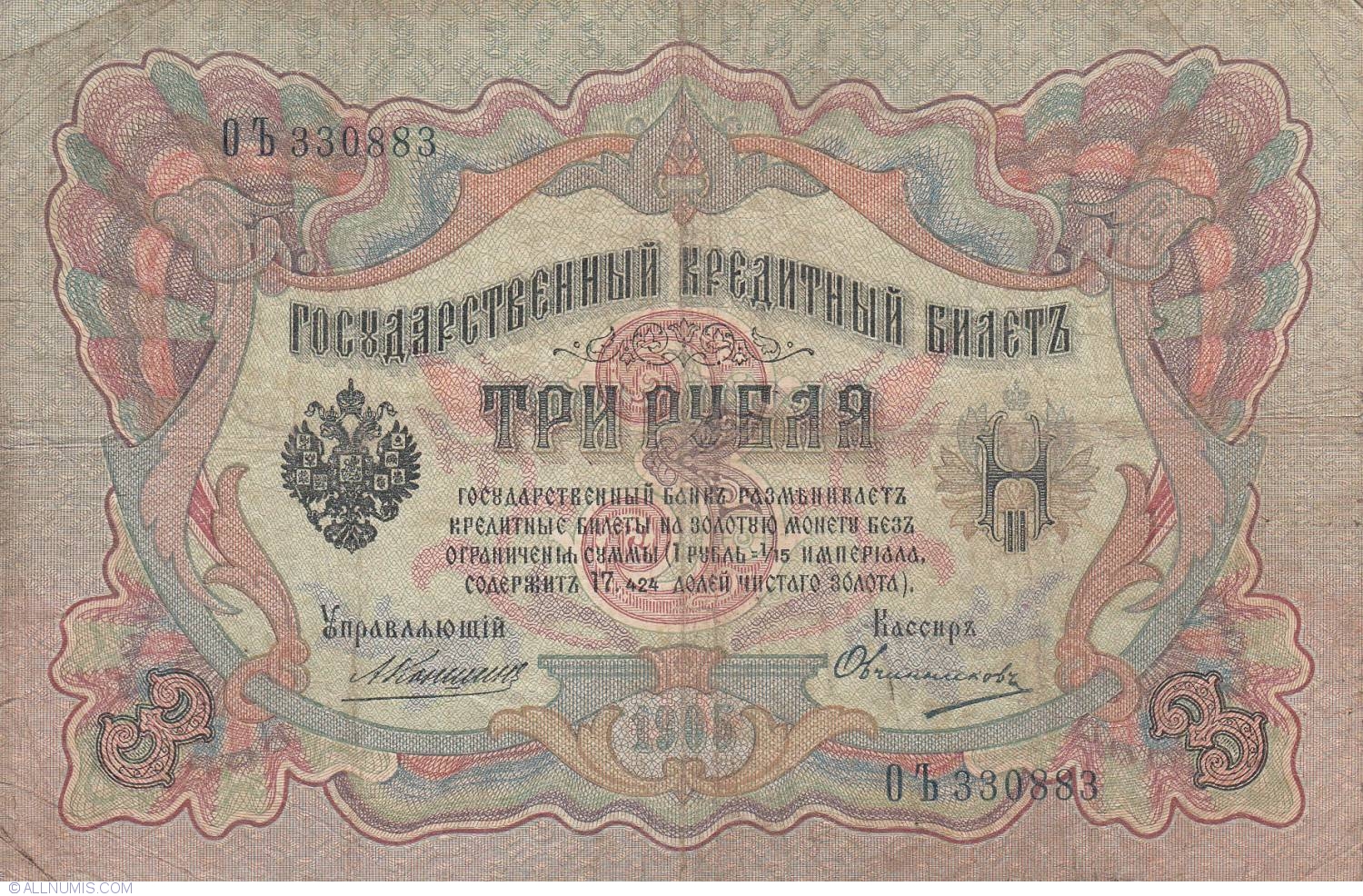
|
|
אַי װאָס? איז דאָך
די קשיא, װוּ װאָלטן
דעמאָלט נעמען ייִדן אױף
שבת? (פֿאַרטראַכט זיך אױף
אַ װײַלע). איז דער
תּירוץ: למאַי װוּ װעל
איך איצטער נעמען אױף
שבת?…
|
But then the problem is, without money how would we Jews be able to provide for
the Sabbath? The answer to that is ― How will I provide for the Sabbath now?
|
ay vos? iz dokh di kashye, vu voltn demolt nemen yidn oyf shabes? (fartrakht
zikh oyf a vayle). iz der teyrets: lemay vu vel ikh itster nemen oyf shabes?…
|

|















